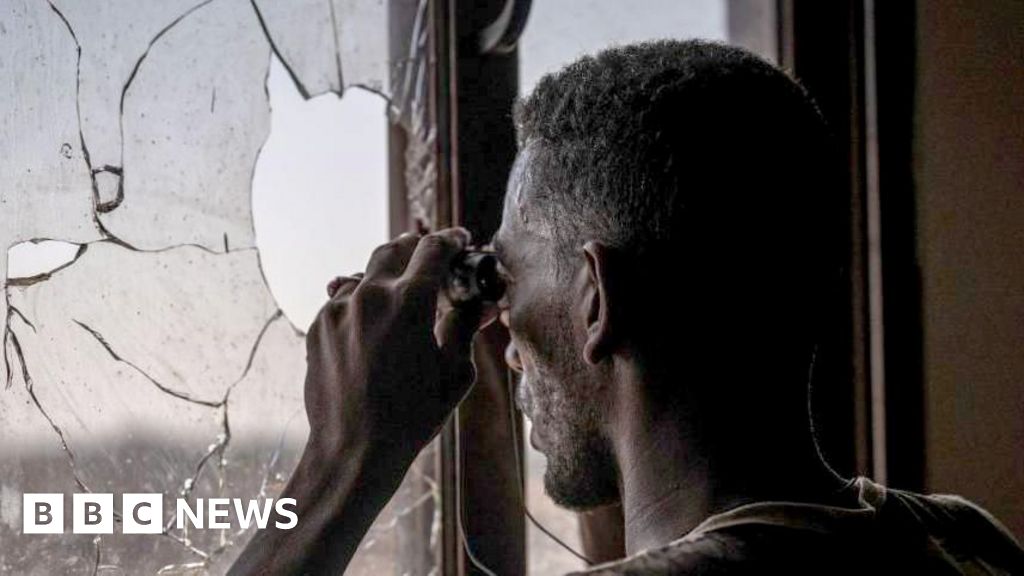Children killed in 'palling' Sudan hospital attack - WHO head

Children Among Dozens Killed in Attack on Sudan Hospital, WHO Says
More than 40 people, including children and medical staff, have been killed in an attack on a hospital in Sudan's West Kordofan state, according to the World Health Organization (WHO). The Al-Mujlad Hospital, located in the town of Muglad, was reportedly struck on Saturday amid ongoing conflict between the Sudanese army and the Rapid Support Forces (RSF).
The WHO's Director-General, Tedros Adhanom Ghebreyesus, condemned the attack on social media, stating: "Another appalling attack on a hospital in Sudan has seen more than 40 people killed, many of them children and medics... attacks on health must stop everywhere!"
Conflicting Accusations Over Hospital Attack
The RSF and two prominent civil society groups have blamed the Sudanese Armed Forces (SAF) for the attack. However, the army has yet to issue a public statement addressing the allegations. The Sudan Doctors Network and the Emergency Lawyers group have also attributed the attack to the SAF.
The Sudan Doctors Network alleged the army targeted the hospital in an attempt to eliminate RSF fighters allegedly "stationed inside." The RSF has not commented on this claim, and independent verification remains challenging due to the ongoing conflict.
Humanitarian Crisis Deepens
The attack on Al-Mujlad Hospital, described as "the only functioning healthcare facility in the area" by the Sudan Doctors Network, further exacerbates the already dire humanitarian situation in Sudan. The conflict, which began in April 2023, has displaced millions and left the country facing what the UN has termed the world's worst humanitarian crisis.
The WHO's office in Sudan reported that six children and five health workers were among the deceased, with dozens more injured. The hospital also housed a crucial dialysis unit, primarily serving the civilian population.
UNICEF Warns of Worsening Crisis for Children
The head of UNICEF, Catherine Russell, recently warned of a "worsening crisis" for children affected by the Sudanese civil war. During a visit to refugee camps in neighboring Chad, Russell highlighted the lack of adequate funding for aid efforts, stating that the response is underfunded by two-thirds.
"Hundreds of thousands of the most vulnerable children are bearing the brunt of both the war in Sudan and a lack of essential services for those who have fled to Chad," Russell said, adding that many children are "malnourished, out of school, and at serious risk of exploitation and disease."
Historical Context and Challenges to Healthcare in Sudan
Attacks on healthcare facilities are not new in Sudan's history of conflict. During the Darfur conflict in the 2000s, similar incidents were documented, often attributed to a lack of respect for international humanitarian law and the deliberate targeting of civilian infrastructure. This pattern underscores the vulnerability of healthcare systems in conflict zones and the need for stronger protections.
According to Dr. Ahmed Elzobier, a Sudanese public health expert based in London, the current conflict has decimated the healthcare infrastructure. "Even before the current fighting, Sudan's healthcare system was struggling with limited resources and a shortage of trained personnel. The ongoing violence has forced many facilities to close, leaving millions without access to essential medical services," he explains.
War Crimes Allegations and International Condemnation
Both sides of the conflict have faced accusations of war crimes, including attacks on medical facilities and personnel, as documented by BBC News Arabic and other sources. Allegations of genocide in Darfur and the widespread killing of civilians have further intensified international scrutiny.
The international community has repeatedly condemned the violence and called for a ceasefire. However, efforts to mediate a peaceful resolution have so far been unsuccessful. The ongoing impunity surrounding attacks on healthcare facilities continues to be a major concern.
Expert Analysis: The Erosion of Humanitarian Principles
Dr. Fatima Haroun, a researcher specializing in humanitarian law at the University of Khartoum (currently displaced), argues that the repeated attacks on healthcare reflect a broader erosion of humanitarian principles in the conflict. "The deliberate targeting of hospitals and medical staff is a clear violation of international law. It demonstrates a callous disregard for the lives of civilians and undermines the very foundations of humanitarian action," she says. "Without accountability for these crimes, the cycle of violence and impunity will continue."
The situation in Sudan remains deeply precarious, with the civilian population bearing the brunt of the ongoing conflict. The attack on Al-Mujlad Hospital serves as a stark reminder of the urgent need for a ceasefire, increased humanitarian access, and accountability for those responsible for war crimes.
Originally sourced from: BBC News Africa
